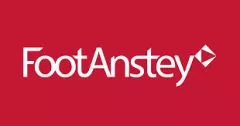- within Consumer Protection topic(s)
- in Europe
- in Europe
- in Europe
- in Europe
- with readers working within the Banking & Credit and Securities & Investment industries
- within Consumer Protection, Criminal Law, Media, Telecoms, IT and Entertainment topic(s)
After cautious trials, the idea of introducing electronic shelf labels (ESLs) into stores is beginning to gain traction. Co-op confirmed in 2025 that all 2,400 of its stores will be equipped with ESLs by 2026 while discount retailer Company Shop has already rolled out ESLs across its UK stores.
The headline benefit of ESLs is labour efficiency. Price updates that could otherwise take staff hours can be pushed to shelves faster, which can be a significant saving at a time of rising staffing costs and tight margins. ESLs may also assist retailers with adapting to regulatory shifts; with new rules on unit pricing targeted for introduction on 1 October 2025, ESLs could offer a way for retailers to adjust unit measures quickly by electronic means compared to having staff members manually sort through shelves and update labels.
ESLs also carry strategic weight, with Co-op's head of operations seeing ESLs as offering multiple operational benefits: 'the electronic labels have the potential to enhance product information and transparency, avoid paper waste and make everyday tasks like picking online orders easier'. The technology could streamline both consumer-facing information and back-of-house processes, reducing retailers' reliance on paper-based systems while improving efficiency for staff fulfilling digital orders.
The benefits of ESL are promising: fewer paper labels, less plastic backing and reduced printing costs. However, the pathway to adoption may not be equally accessible for all retailers. While supermarket giants like Co-op can draw upon their sizeable pool of resources to invest in ESLs, the initial capital outlay, ongoing connectivity costs and technical support requirements could prove prohibitive for smaller grocers operating with less upfront capital to draw upon. This may create a potential divide where larger chains gain operational advantages through efficiencies introduced by ESL systems while smaller competitors remain tied to manual, paper-based systems.
As ESL adoption accelerates among major retailers, the technology may be poised to become a new operational standard. The combination of labour savings and environmental advantages could turn what started as cautious trials into a total transformation of how retailers manage their shelves.
The content of this article is intended to provide a general guide to the subject matter. Specialist advice should be sought about your specific circumstances.





